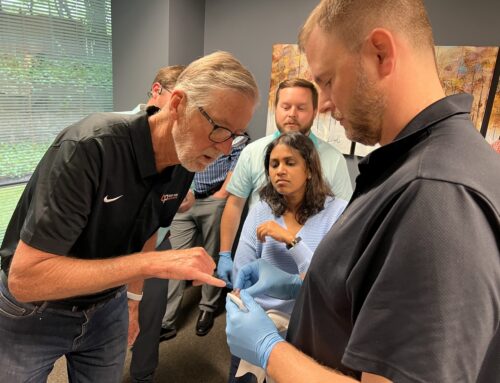We never needed further proof of the success of oral appliance therapy, but it doesn’t hurt to hear more about it and reaffirm its input. In this recent study, we can see just how successful Narval appliances are in the treatment of sleep apnea. Let’s take a look…
The Background
In this study, mandibular repositioning devices (MRDs) are usually recommended as the first form of therapy for patients suffering from mild to moderate obstructive sleep apnea (OSA). Unfortunately, though, data on the long-term efficacy of MRDs hasn’t been readily available. This is not only true for patients with OSA who are noncompliant with CPAP, but also in those with more severe OSA.
To get a better understanding of the success of oral appliances, such as MRDs and the Narval appliance, the ORCADES study[1] aimed to determine the long-term efficiency and tolerability of two custom-made Narval MRDs for the treatment of OSA patients. The study was completed over a three to six month period of time.
Eligible patients suffering from OSA who also refused or were CPAP noncompliant, were studied. The outcomes were measured after gradual mandibular advancement titration, which included AHI, oxygen saturation, sleepiness, symptoms, quality of life, side effects and compliance. And, drumroll please! Here are the results…
The Results
Of a total of 369 patients involved in the study, overall MRD treatment was successful in approximately 76%. Additionally, complete response to treatment with MRDs was achieved in 64% of participants.
The study also treated severe OSA with MRDs, and about 60% of the participants were effectively treated with about 38% having completed symptoms resolution. As a result, the use of MRDs in the treatment of sleep apnea significantly decreased a person’s sleepiness, and eliminated symptoms while improving their quality of life. Treatment with MRDs were very well tolerated and compliance was at its highest rate.
Custom-made appliances, such as Narval MRDs, are effective forms of treatment for mild to severe OSA, as well as for patients who are CPAP noncompliant. Keep this study in mind when informing your patients of proper treatment options, as well as sharing with referring doctors.
[1] Vecchierini, M. F., Attali, V., Collet, J. M., d’Ortho, M. P., El Chater, P., Kerbrat, J. B., … & Mullens, E. (2016). A custom-made mandibular repositioning device for obstructive sleep apnoea–hypopnoea syndrome: the ORCADES study. Sleep Medicine, 19, 131-140.



